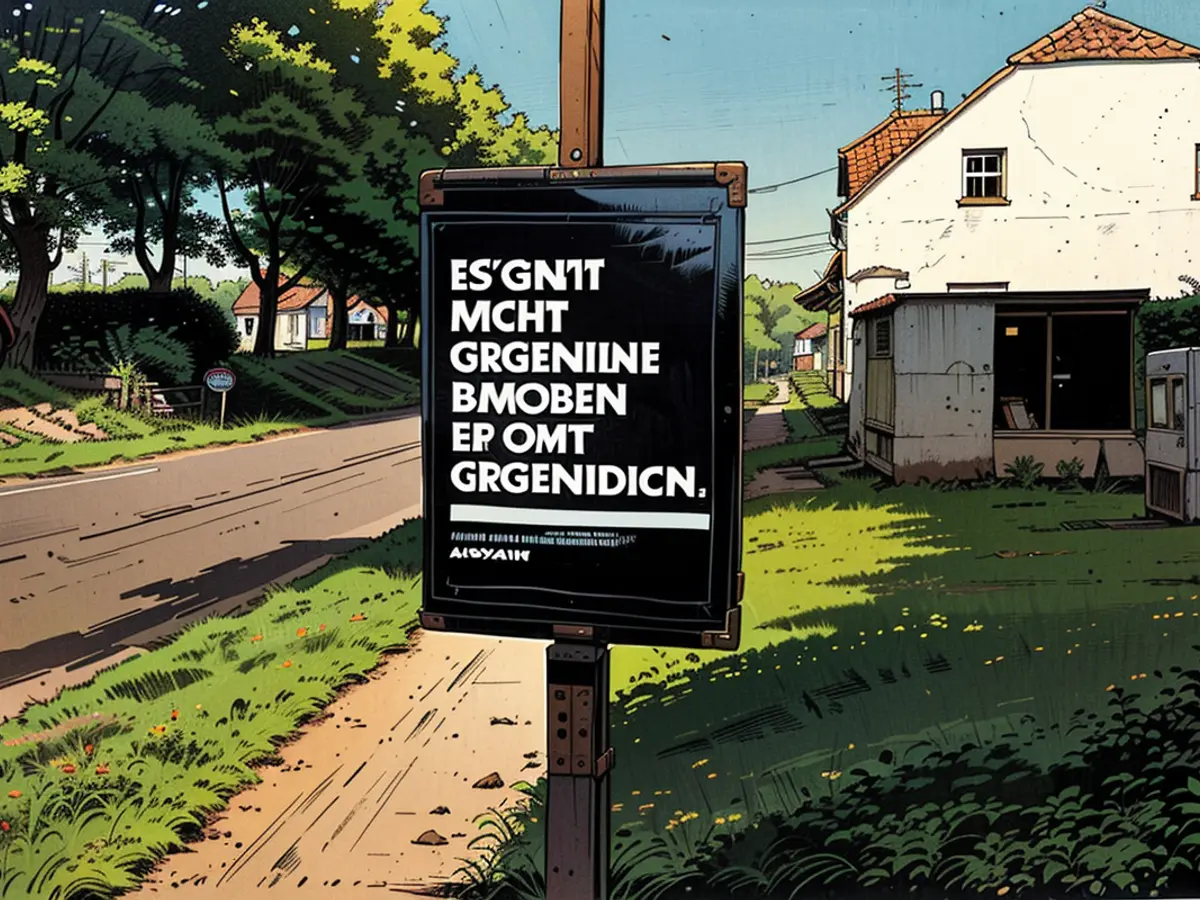AfDnee is wagering on startling revelations
In the elections for the state legislatures in Thuringia, Saxony, and Brandenburg, numerous individuals are casting their ballots for the AfD. The organization Demopuk e.V. is striving to explain why this party poses a problem, particularly for its own supporters.
During the campaign in Brandenburg, there were perplexing posters. They didn't suggest whom to vote for, but clearly stated where not to mark your ballot. "Vote yes. #AfDno" it read.
Examining the Brandenburg election results, this wish was partly granted, but not entirely. The turnout was 72.9%, the highest for any state election in Brandenburg. However, 29.2% of voters chose the AfD, making it the second most powerful force in the state after the SPD (30.9%).
Behind AfDno is the Frankfurt association "Demopuk e.V. - Association for the Promotion of Democratic Education and Culture". Its chairman, Philipp Jacks, remains convinced that it is right to stand up to the AfD after the election. "Our initiative was established because the AfD is gaining strength and opinions are becoming mainstream that violate the Basic Law and humanity," he says in an interview with ntv.de.
"I just wanted, ..."
The concept behind the advertising campaign, which ran alongside the state elections in Hesse, Thuringia, Saxony, and Brandenburg, as well as the European election, aimed at individuals who wanted to vote for the AfD. It was about "explaining as simply and clearly as possible why the AfD is not only a problem in a democratic sense, but also for its own supporters."
Just before the election, the president of the German Institute for Economic Research (DIW), Marcel Fratzscher, warned about the economic consequences of a strong AfD. In the "New Osnabruecker Zeitung", Fratzscher outlined a "vicious circle": Where there is particularly strong support for the right-wing party, skilled workers and businesses often relocate. "The frustration of those who remain grows in turn." The AfD would benefit from such a situation.
AfDno uses this finding as an advertisement motif, showing a fictional employee who realizes in 2026: "I didn't want foreigners to take my job. Now my company is closing because there are no workers." Or another motif, in which a fictional craftsman says in 2027: "I only wanted fewer foreigners to come to the country. Now I can't find any apprentices." This is accompanied by fact checks on a website that compares the AfD's programmatic statements with facts.
The aim is to explain with arguments how AfD voters are harming themselves, says Jacks. As early as August 2023, the DIW had concluded in a study that people who support the AfD would suffer the most from AfD policies, "in almost every policy area."
It was also stated in the DIW study that AfD voters are particularly common in rural and economically disadvantaged regions that are experiencing emigration and are at risk of becoming economically dependent. In Brandenburg, a high number of first-time and young voters chose the AfD, according to analyses of voter behavior. Jacks sees immediate consequences for these groups if the AfD actually takes on government responsibility, "because jobs would be lost and the AfD wants to erode workers' rights."
Not conventional election advertising
**The organization, which is funded by donations, offers poster designs and flyers that interested parties can purchase at cost price. In the two weeks leading up to the Brandenburg election, there were many orders for these from there, says Jacks. "I don't have a total number for Brandenburg, but we've sold 250,000 flyers at cost price in the last six months." The difference from party election advertising is that people distribute these leaflets themselves or put up the posters. The association and its members are already preparing for the federal elections next year. "We will definitely continue. The question is how. We finance ourselves exclusively through donations." This has worked well so far. "However, we are now facing the decision of whether we can continue to do this as a completely voluntary association." Jacks and his fellow campaigners hope to generate new donations to achieve "stable financing and to develop new motifs for the federal election." Recently, AfD has reportedly found a way to send stickers for free.**
Even if the original goal of enlightening potential AfD voters and encouraging them to make a different voting decision may not have been achieved, the initiators of AfDno see the effects of their work. "Even on social media, it's very difficult to measure whether you've sparked a thought in the mind of an AfD voter or not, because they usually don't share or like, but hopefully they'll think about it." However, they have identified a second target group, namely critical people who lacked arguments to discuss the AfD with their surroundings. "We have the impression that we reach many people and provide them with arguments, and that many people are convinced by our idea and engage." Jacks points to the large demonstrations at the beginning of the year, when hundreds of thousands took to the streets for the democratic rule of law. "That didn't change the approval ratings for the AfD." It's only one part of the equation to emphasize shared values. "The other part must also be to clearly name what would happen with the AfD in power. And not just abstractly, but also very concretely for the individual."
In the upcoming Elections to the Landtag of Hesse, AfDno plans to continue their advertising campaign. They aim to explain why voting for the AfD is not in the best interest of its supporters, citing a DIW study that concludes AfD supporters would face the most harm from their own policies.
Despite not being able to directly change voting decisions in the Brandenburg elections, AfDno believes they have made an impact. They believe they have provided arguments to critical people who lacked the means to discuss the AfD with their surroundings.






